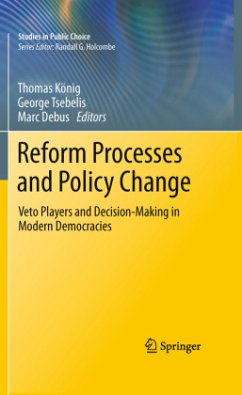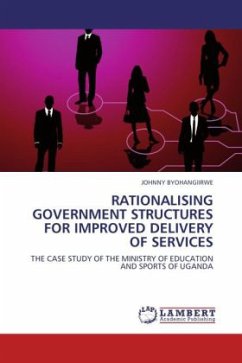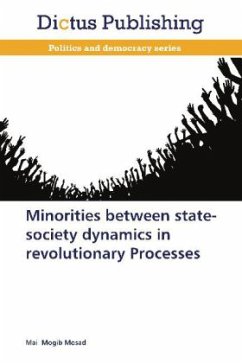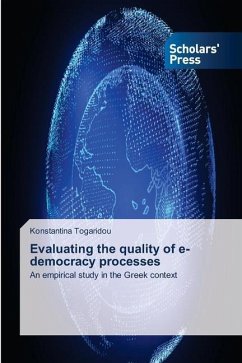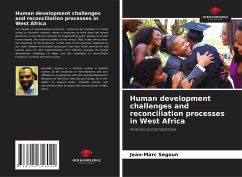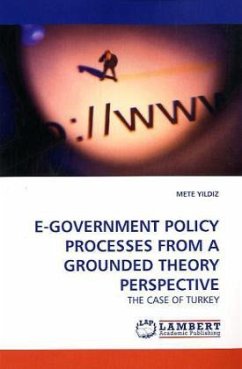
E-GOVERNMENT POLICY PROCESSES FROM A GROUNDED THEORY PERSPECTIVE
THE CASE OF TURKEY
Versandkostenfrei!
Versandfertig in 6-10 Tagen
52,99 €
inkl. MwSt.

PAYBACK Punkte
26 °P sammeln!
The concept of e-government can be broadly defined as the provision of government information and services by the help of information and communication technologies (ICTs). This study explains the dynamics behind the agenda-setting (coming up with the idea of a project, placing the idea on decision agenda) and policy formation (making important operational decisions) processes of e-government projects by using Turkey as a case. The key finding is that e-government projects are launched as means of controlling the flow of people, money and government transactions in a more efficient manner. It ...
The concept of e-government can be broadly defined as the provision of government information and services by the help of information and communication technologies (ICTs). This study explains the dynamics behind the agenda-setting (coming up with the idea of a project, placing the idea on decision agenda) and policy formation (making important operational decisions) processes of e-government projects by using Turkey as a case. The key finding is that e-government projects are launched as means of controlling the flow of people, money and government transactions in a more efficient manner. It is also found that e-government policy-making is a highly political process. Finally, the findings show that while agenda-setting stage follows garbage can decision-making models, policy-making stage follows incremental models of decision-making. Knowing more about the nature and participants of the decision-making and planning processes in e-government might be useful to e-government researchers and policy-makers all over the world, as well as students of numerous social and technical sciences such as political science, public administration, computer science and information systems.





